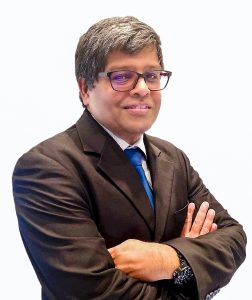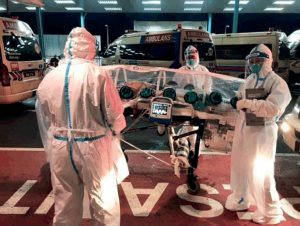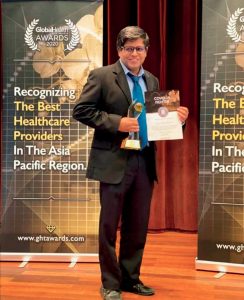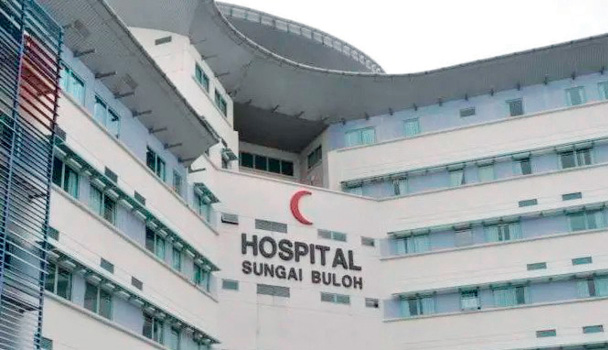
Dato’ Dr Suresh Kumar
Senior Consultant, Infectious Disease Physician and Head of Medical Department at Hospital Sungai Buloh.
AS OF NOV 15, Malaysia had fully vaccinated 76.1 per cent of its total population against Covid-19. More than a million booster shots have also been administered to eligible individuals by the Ministry of Health (MoH).
This situation has allowed the country to reopen its economic and social sectors after more than a year. Premises such as offices, malls, schools and theme parks have started to operate again, and Malaysians have slowly learnt to live with the virus.
Whilst everything seems to be returning to normal, the number of positive cases in the country is still relatively high. Around 5,000 to 6,000 cases are recorded every day, although the death rate has reduced to below 100 daily.
According to the worldwide trend, this number is expected to increase soon. Countries like the United States and Singapore have also experienced a surge in positive Covid-19 cases despite their high vaccination rate.
“Covid-19 virus is a very infectious virus. While vaccination is very effective to decrease transmission, it cannot stop the transmission,” explained Dato’ Dr Suresh Kumar, Senior Consultant, Infectious Disease Physician and Head of Medical Department at Hospital Sungai Buloh.
“The positive effects of vaccination are currently being nullified by increasing population mobility. Data suggests Malaysian population mobility has surpassed pre-pandemic levels.
“Hence we will see an increase in the number of cases. However, what we want
to prevent is a surge in hospital admissions.”
The reality of the situation
Mutations of the virus happen all the time. What worries the world is when the new mutated variants become resistant to the vaccines. Reducing the chances of infection is critical to prevent this situation from happening.
“Mutations continue to happen in the virus. But only if there is a mutation that renders our vaccine ineffective or a mutation that makes it spread faster than the current Delta variant, we need to worry. Such mutations seem to be rare.
“However, if there is more transmission, especially to immunocompromised hosts, the threat that such a mutation will occur is always there. If we can vaccinate the whole world as soon as possible, we can decrease this threat,” he said.
Dr Suresh shared that most viral infections did not have a cure. In the case of Covid-19, he said there were two promising antiviral drugs currently being registered. However, they still need to wait and see how effective these drugs are in the real world.
“The current variant that has spread all over is the Delta variant. Two doses of current vaccines are 70 to 90 per cent effective to prevent hospitalisation or severe disease. This 70 to 90 per cent effectiveness is not good enough to prevent another surge in severe cases.”
However, he shared that studies from countries like Israel had shown that third dose vaccines decreased hospitalisation rates by 90 per cent compared to just two doses, especially in the high-risk groups (above 60 years old and 40-60 years old with medical conditions).
“In Selangor, more than 90 per cent of the population are vaccinated. Between 75 and 80 per cent of those admitted with severe diseases were vaccinated. These are mainly patients above 60 years old or 40-60 years old with some medical conditions,” he added.

Dr Suresh has been actively involved in the management of Covid-19 at Hospital Sungai Buloh. It includes the time when cases were at peak this year. He said the overwhelming number of patients admitted to the hospital was the main challenge in helping manage the pandemic.
“The sheer number of ill patients was the biggest challenge. We had more ill patients than our ICUs could manage. We need to prevent this problem from recurring again,” he highlighted.
Pandemic to endemic
Covid-19 is also known to have a longer-lasting impact on those infected with the virus. Dr Suresh shared that many patients, especially those with severe diseases, suffered from tiredness, difficulty breathing, and depression for months after the Covid-19 infection.
Whilst there are discussions on Malaysia’s transition to an endemic stage, he believes the country has not yet reached the phase.
“Endemic phase means that we have learnt to live with the virus. At this juncture, we are not there yet,” said Dr Suresh.
“Hospitals still have too many ill patients with Covid-19. It has affected the non-Covid-19 medical services such as surgeries for cancers, etc. For us to reach the endemic phase, two things have to happen.
“The first is the public has to be mindful always about the risk of getting infected and spreading it to others. Avoid crowded or poorly-ventilated areas. They should get tested if they develop any symptoms.
“The second one is the high-risk group should get their third dose of vaccine. If they do that, even if they are infected, they will not get a severe disease requiring hospitalisation,” he explained.
When asked about the prospects for Malaysian healthcare in 2022, he said: “Covid-19 is unknown territory for all of us. No one can say for sure what will happen next. Healthcare will continue to be under severe stress in 2022.

“It needs sufficient resources in terms of equipment, space and staffing. It will have to manage the tail end of the Covid-19 pandemic and at the same time catch-up with the non-Covid-19 services neglected for the past 12 to 18 months.”
On Oct 31, Health Director-General Tan Sri Dr Noor Hisham Abdullah congratulated Dr Suresh and his team for the recognition at the Global Health Awards 2020.
“Heartiest congratulations to Dr Suresh Kumar and Dr Shaiful Azman Zakaria (Head of Anaesthesia & Intensive Care Department), Sungai Buloh Hospital and the whole Covid-19 team for the recognition at the Global Health Awards 2020. The nation thanks you for unwavering dedication and sacrifices,” he wrote. FATIHAH MANAF — The Health








